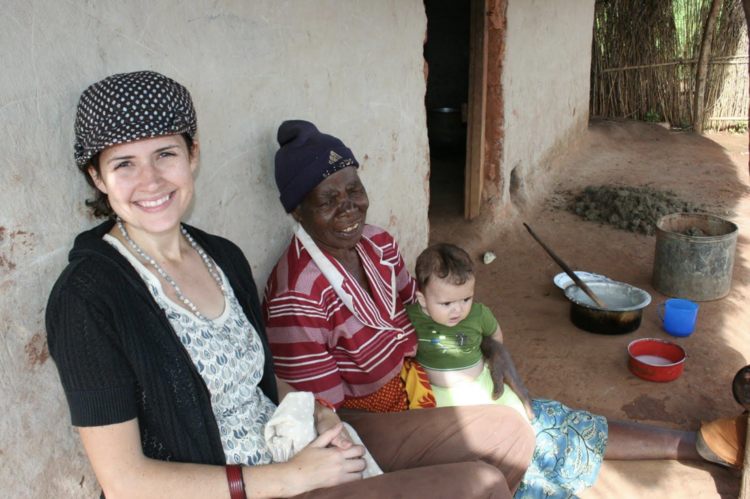The Value of Postpartum Doula Care

A doula’s role is a guide, witness, coach, advocate and interpreter. We envision a world of women that know they are a part of a common humanity. So many mothers spend the early part of their postpartum days in a haze, feeling guilty for having any emotion other than pure joy or feeling deeply in love. This guilt in isolation is the perfect breeding ground for postpartum anxiety or depression.
I know, because becoming a mother completely emptied me. Becoming a parent is not like going to college, getting a driver’s license or signing an apartment lease. It's not even like getting married. All of those things come with responsibility, a sense of adventure and an opportunity for self-exploration. But parenting is all of those things plus being completely responsible for a small, dynamic, unique, co-dependent human. Which means relearning everything from the perception of the protector of my child.
There was a moment that felt like a breaking point for me. My baby was about 4 months old. I was staying at a friends house, in a village in Africa, and my husband asked me to attend the village community group. I wanted to, and I knew I needed to, but I couldn't find the words to say, "I don't know how to get dressed anymore", in a way that he could understand. I am sure people experience it at different times, and in different ways, but, there is a good chance that after your baby is born your world will seem to explode and you feel lost.
I managed to get dressed, feeling lost. We walked down the road, as I worried about what I was wearing and how to act, and what to do. Once inside a woman in the group walked up to me and took my baby. I thought, ‘he'll cry, you won't want to hold him, it won't last long, he’s a lot to manage’. She smiled at the face I made, reassuring me without being able to speak the same language that it would be okay. As she held him, I struggled with feeling judged that I couldn't handle my own baby, instead of feeling happy that my hands were free and people were sharing in this role with me.
I have learned that new creation requires breaking up the old creation; new life follows loss of the old life. We consider the newborn the new life, but birth is also the starting point of a new way to live life for the entire family.
As a mom that works with new moms, I know at some point, we all look in the mirror and ask, “What happened to who I was? How do I leave the house or cook or do the laundry now? Why are my relationships with my friends and parents different? What is going on with my marriage? What about my career? Who am I now? Why do things have to change, or why do I have to give up so much?”
As new life disrupts the old life it feels chaotic and disorienting. As with the physical aspect of giving birth, there is transition and discomfort. And it's not because there is something wrong with you, or me, or all of us. It's just the process of things becoming undone to make space to learn this new life as a parent.
The statistics show the most common complication with pregnancy, in every demographic, is perinatal mood disorders affecting 1 in 5 parents.
New families need safe places to share these overwhelming or “scary thoughts”, a phrase coined by Karen Kleiman, MSW, LCSW, maternal mental health expert and founder of The Postpartum Stress Center, LLC. The cultural perception of the “joy of parenthood” needs to shift from a moment to moment joy into a bird’s-eye view of loving a child. This concept can be formed as those working with new parents are trained to ask better questions about the transitions surrounding parenthood to encourage parents to prepare or identify their postpartum support, and are not told to “enjoy every minute, because infancy is so short.” Postpartum support can include hiring a Postpartum Doula as a coach, listening ear, baby holder, and household helper. Families can also organize meal, cleaning, and laundry services. Communities can play a role by creating opportunities for parents to authentically connect and share the pangs of growing into the role of a parent. As many new mothers don’t feel comfortable leaving home, facilitating group video calls can be a way to decrease the isolation and shame that can take root and immobilize a new parent.
Research by Kristin Neff, Ph. D, shows practices of self-compassion build our resiliency and high levels of self-reported compassion is an indicator that a person is less likely to experience PTSD after a trauma, and even the best-case scenario of a birth can be traumatic. Shame researcher Brene Brown, LCSW, Ph. D, has taught us that authentic connections where we have a place to belong and tell our stories reduces the detrimental effects of shame.
We all know a parent, and likely are connected to someone that is pregnant or recently had a baby. There are little ways we can reach out in kindness and compassion to rebirth our culture’s representation of the ‘joy of motherhood’, especially in the age of highlighting the best moments on social media. Let’s show up with more food and less pressure to feel happy. Let’s reach out so new parents know we are thinking of them and open the space for dialogue. Let’s tell our own stories of becoming a parent with both the beauty and the grief.
By Jill Businelle, Birth & Postpartum Doula
We are so lucky to have Jill in NYC Birth Village! Read more about Jill here: link